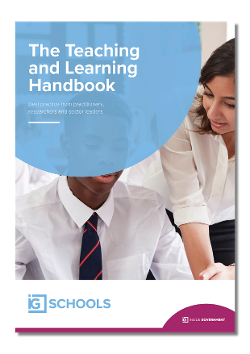The Rise of Evidence-Based Teaching: A Learning Journey for the Teaching Profession

Jonathan Haslam, Director of the Institute for Effective Education shares insights on the current landscape of effectively engaging with evidence based teaching in schools.
@Jonathan_Haslam
Interest in evidence based practice in education has never been higher. A recent report from the Sutton Trust showed that the number of school leaders “considering research evidence” had risen from 52% in 2012 to 68% in 2018. For teachers, the figure had risen from 32% to 45%.
Teachers regularly turn out on weekends to find out more about research and evidence based teaching strategies. Regional researchED events (such as those recently at Blackpool and Durrington) attract more than 200 delegates, while the national researchED event will attract around 1200 delegates, all on a Saturday!
At the Institute for Effective Education, where we’ve been working for the last ten years to get the results of research into the hands of practitioners and policy makers, the number of subscribers to our free, fortnightly Best Evidence in Brief email (which attempts to distil four or five bits of recent research into a snappy summary) now goes to more than 4,500 subscribers in the UK, another 10,000 in the US, a newly started Chinese version, and a Spanish one in the pipeline.
The prize on offer for this movement is to build the teaching profession on the lessons learned (and gathered methodically) from hundreds and thousands of teachers, schools, and students around the world. Why limit yourself to the opinions of a politician or a super-head when you could have a world of research at your finger-tips? If this does not enable us to make steady, incremental improvements across the system, rather than lurching from one fad to the next, then I am not sure what will.
But it will not be easy. We know that changing individual practice is not straightforward, even where the findings from research are clear. And the findings from research are not always clear. And they are not always clearly presented. And they are not always impartially chosen. And… well you get the idea.
The Research Schools Network, a project run by the IEE and the EEF with 22 schools trying to putting the research into practice, is one attempt to address this, but it is only a first step.
Nick Rose has said that it will take a generation for teaching to become evidence-informed, and I am inclined to agree with him. Which implies that we need patience, plenty of it. But one day there will be an evidence-informed education system that is built on a secure body of knowledge, with individuals who have the skills to make use of that knowledge. It’s a learning journey, not just for an individual, but for an entire profession.
Read more insights in our Schools Teaching and Learning Handbook.



-3.png)
%20(1).png)